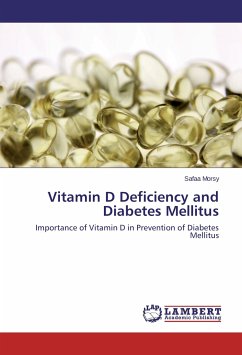Diabetes mellitus is a group of metabolic disorders characterized by chronic hyperglycemia with disturbances in carbohydrate, fat and protein metabolism resulting from defects in insulin secretion, action or both. There is evidence that vitamin D deficiency leads to glucose intolerance and predisposes to type 2 diabetes mellitus. On the other hand, observational studies demonstrated high prevalence of vitamin D deficiency in patients with Type I diabetes mellitus (T1DM) and suggested a contributory role in the pathogenesis of T1DM, while the restoration of vitamin D levels may reduce the risk of type 1 diabetes mellitus. Vitamin D supplementation during pregnancy and early childhood decreased the risk of autoimmune diabetes and perhaps, even after the onset of diabetes, it may improve glycemic control. Questions persist about the optimal level of vitamin D to prevent the risk of developing diabetes mellitus. However, large long-term clinical trials are needed to confirm if vitamin D supplementation could prevent or delay the onset of diabetes and diabetic complications.
Bitte wählen Sie Ihr Anliegen aus.
Rechnungen
Retourenschein anfordern
Bestellstatus
Storno








